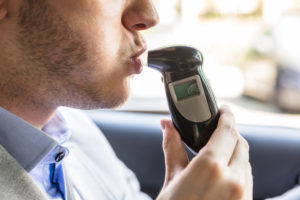
If you are stopped while driving in Minnesota and the officer has reason to believe that you are driving under the influence of alcohol or drugs, they may ask you to submit to a breathalyzer test. You can refuse to submit to the test, but doing so will result in what’s known as an Implied Consent violation.
As we’ve talked about on the blog on numerous occasions, Minnesota has an Implied Consent law on the books that essentially states that because driving is a privilege and not a right, refusal to submit to a breath test when an officer has reason to believe you are under the influence is a separate crime. But does every state treat refusal this way? We take a closer look at the national landscape of Implied Consent laws in today’s blog.
Does Every State Have Implied Consent?
Yes, every state in the US has some form of Implied Consent laws on their record, but that doesn’t mean the charge is handled exactly the same in every state. Minnesota handles Implied Consent violations in a similar manner as the majority of the United States, as 40 states have administrative penalties on the books for violators. In Minnesota, this means that you’ll be subject to an automatic license suspension, but you will not face criminal penalties for the Implied Consent violation. Each state handles these administrative penalties differently, but these 40 states will not send you to jail for an Implied Consent violation, although a DUI charge may send you there.
10 states have laws stating that an Implied Consent violation is punishable by both administrative and criminal penalties, meaning that you can have your license revoked and spend some time in jail simply for an Implied Consent violation. Those states are Arkansas, Arizona, Florida, Kentucky, Maine, Nebraska, North Dakota, Rhode Island, Vermont and Virginia. Some of these states have no requirements for an individual to face both administrative and criminal penalties, while the following states offer some conditions that must be present for an Implied Consent violation to trigger both types of penalties.
- Arkansas – The law only applies to drivers under 21.
- Florida – Refusal becomes a misdemeanor if the driver’s license has previously been suspended for refusal.
- Kentucky – Refusal only carries criminal penalties if the individual is convicted of the DUI.
- Louisiana – The law only applies if the individual has refused to submit to a chemical test on two previous occasions.
- Maine – Refusal can be considered an aggravating factor at the time of sentencing.
- Vermont – refusal only carries criminal penalties if the person has previously been convicted of DUI or is involved in a collision causing serious bodily injury/death.
And finally, Wyoming has an Implied Consent law on the books, but there are no administrative or criminal penalties associated with opting not to take a breath test. However, refusal does make it easier for an officer to get a warrant that orders a blood or urine test, and your refusal can actually be used during your DUI case to suggest culpability. In other words, if you refuse a breath test in Wyoming, the officer may use that decision in court as evidence that you knew you were over the legal driving limit.
So no matter where you drive in the US, you aren’t going to escape the Implied Consent law, and if you run into a sticky situation in Minnesota, we’d love to assist. For all your criminal matter needs in the great Twin Cities area, reach out to Avery and the team at Appelman Law Firm today at (952) 224-2277.





